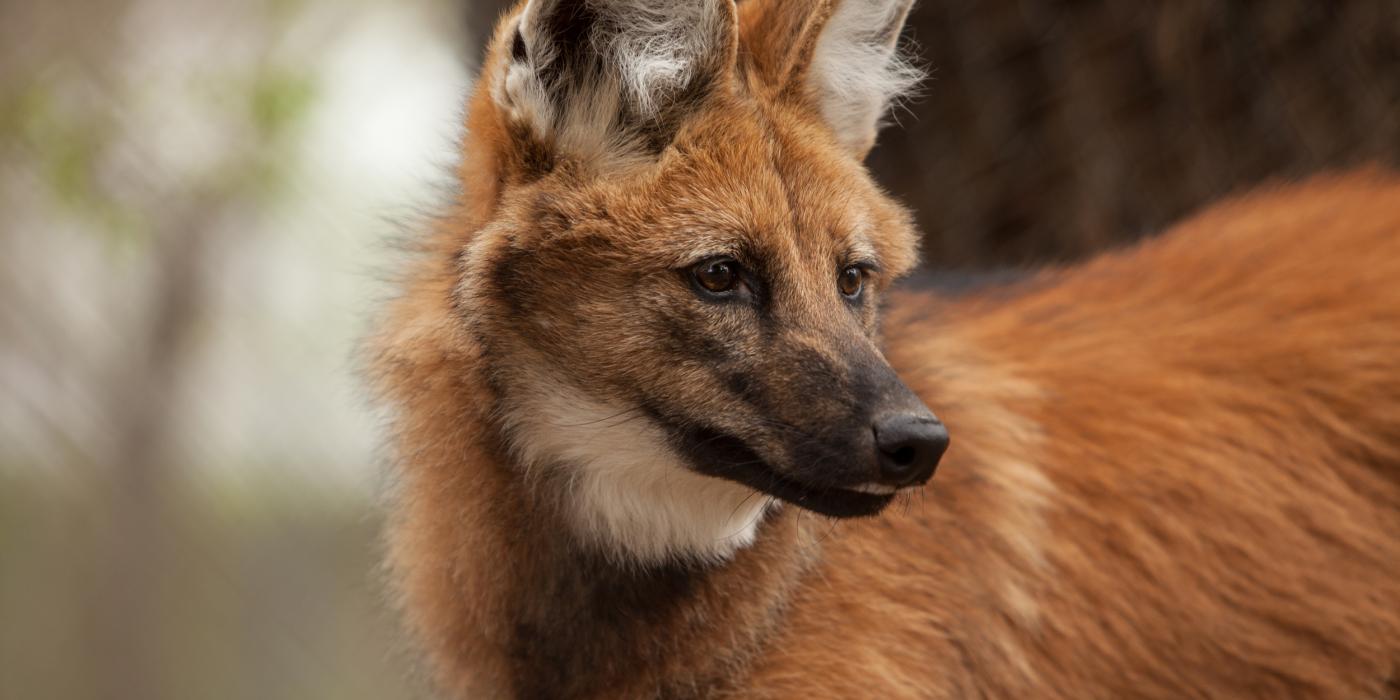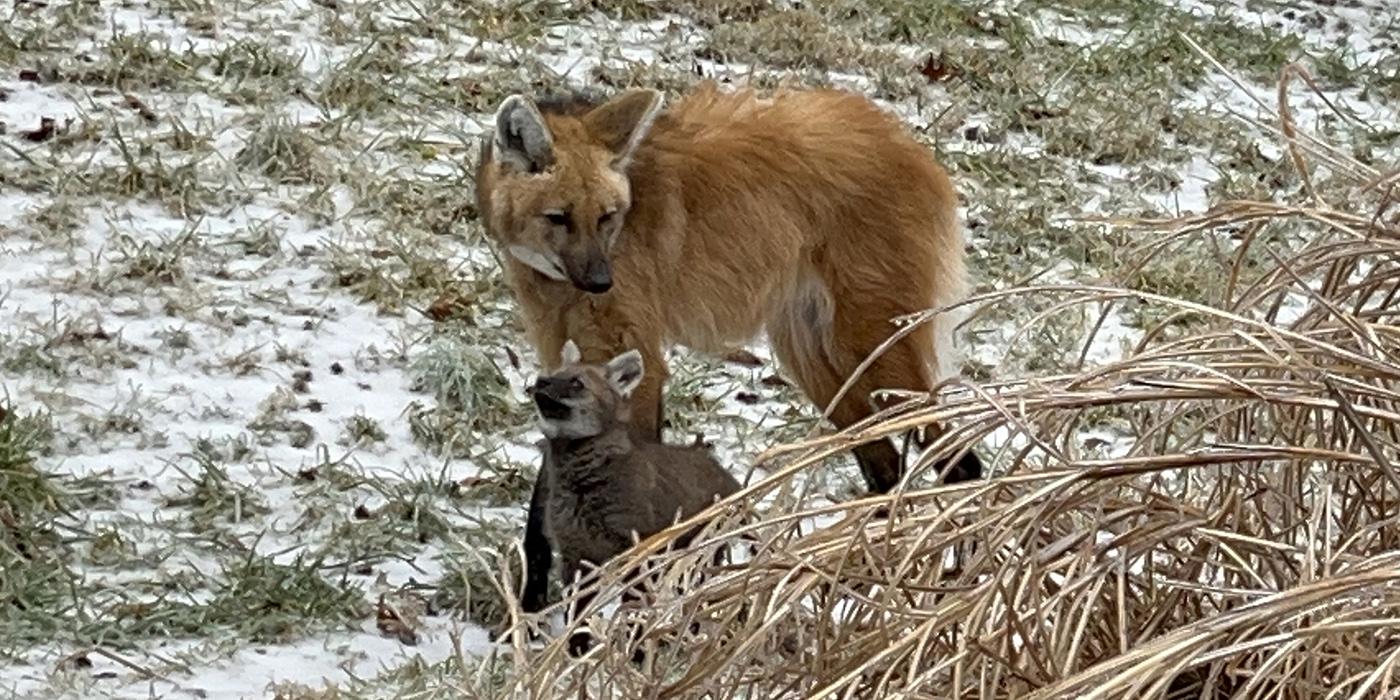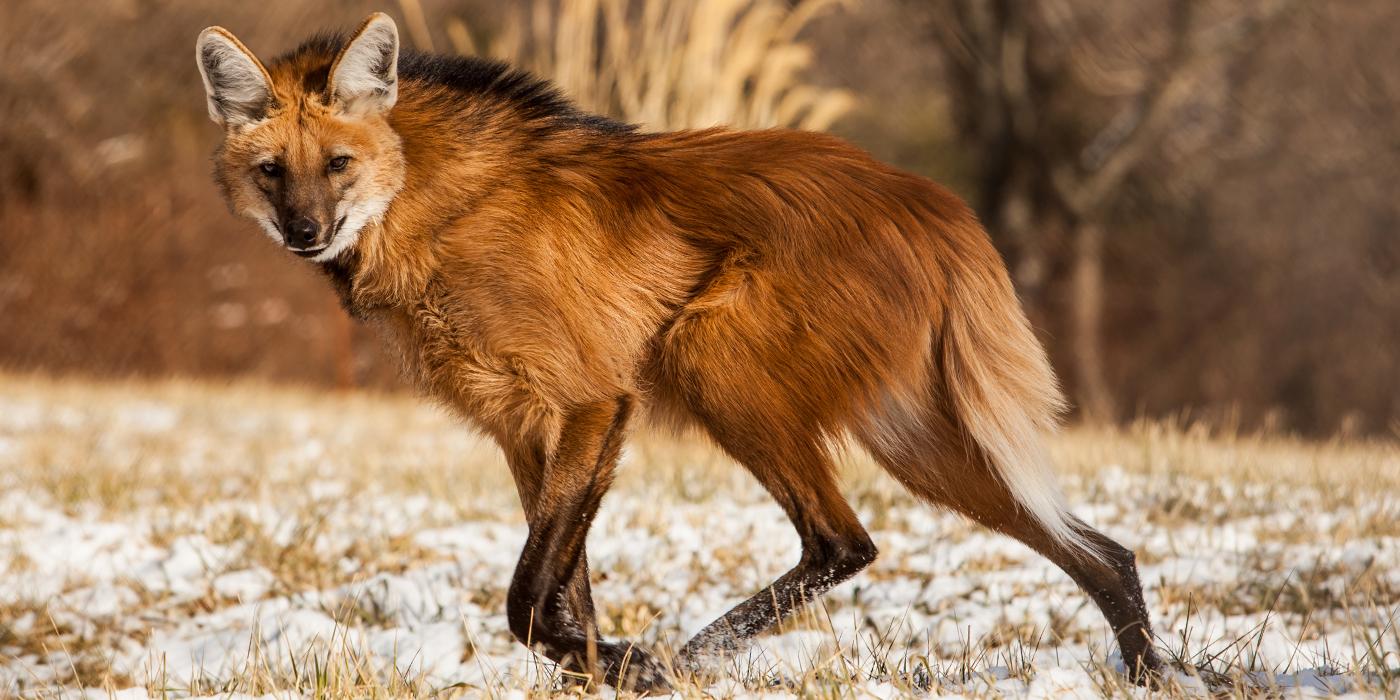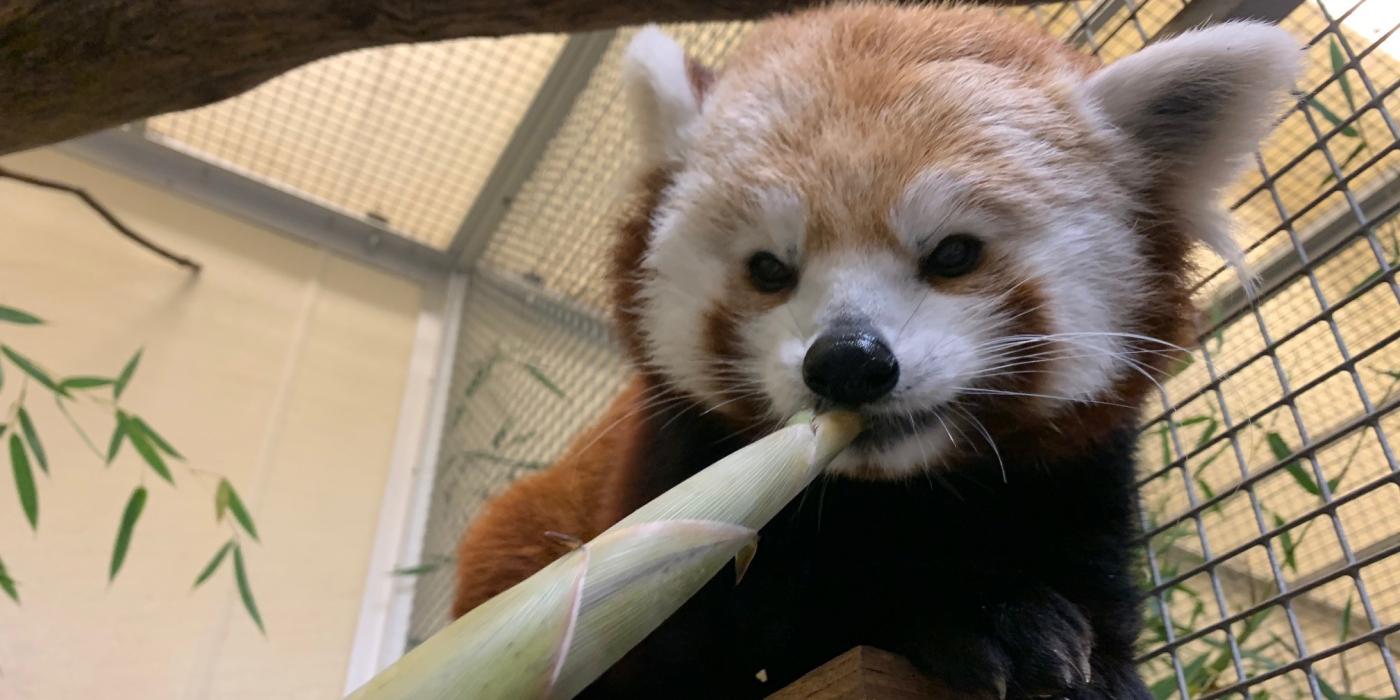Maned Wolf Matchmaking
Maned wolves in the North American population have their very own matchmaker, and her name is Nucharin Songsasen. As a biologist at the Smithsonian Conservation Biology Institute and Species Survival Plan coordinator, it is her job to decide which animals to breed based on their genetics, personality and health, among other traits. Find out what makes a ‘perfect’ pair in this Q&A.
What is your favorite fact about maned wolves?
I have too many favorite facts about them! Since Father’s Day is coming up, I will highlight that maned wolves are very devoted dads. When pups are born, they remain with mom in the den for six-to-eight weeks. When they finally emerge, dad is there to help raise the young! He provides the pups with food and is very protective. Pups usually stay with their parents for six-to-seven months, but they don’t disperse right away. They hang around in their parents’ territory until they are a year old. Then, they are on their own.
How do you act as ‘matchmaker’ for the wolves?
The remarkable thing about the maned wolf North American Species Survival Plan (SSP) is that we know where all of the animals come from, as well as their lineage: parents, grandparents and even great-grandparents! Using this information, we are able to determine the animals’ mean kinship—that is, how related individuals are to one another in the population. The wolves that have a low mean kinship are not well-represented in the population, so they are very genetically valuable.
Of the 92 maned wolves that are currently in the SSP, 16 live here at SCBI. Of those, 10 are of breeding age. The other six are pups. At the annual SSP meeting on May 9 and 10, we received a recommendation to breed 11-year-old Echo, a male, who is ranked number one by the SSP.
Would any of the wolves born in human care be reintroduced to the wild?
In Brazil, much of the maned wolves’ native habitat has been turned into agriculture farms, where crops like corn and soybeans are produced on a massive scale. Only 20 percent of their natural habitat remains. Maned wolves run into conflict with farmers, or get hit by cars, so conditions are not ideal for reintroduction.
Our role, as part of the Species Survival Plan, is to keep an insurance population of wolves in the event that the wild population continues to decline. Although we only have 92 animals in the North American population, their genetic diversity is 90 percent, which is very good!
What are you looking forward to this year?
One of the challenges of breeding maned wolves is having enough zoos and conservation centers to house them. With limited facilities in North America, we could not recommend as many breeding pairs as we would like. We have to be creative in finding space for them.
One solution is to house maned wolves with other animals in a mixed-species exhibit. At several zoos in the U.S., the wolves are housed with giant anteaters, tapirs and capybaras. We are working with the giant anteater SSP to see if zoos that house anteaters are also interested in caring for maned wolves.
At the SSP meeting, we established a partnership with zoos in Europe and South America who are also interested in exhibiting maned wolves. We are discussing exchanging animals so that we will have new founders in the population. In Europe, they have four or five founders from a line that we do not have in the North American SSP. If we are able to import the descendants from those founders, we can enhance the genetic diversity of our own population. Likewise, we can send our animals to European zoos to diversify their populations. The opportunity to work with facilities around the world that care for maned wolves is very exciting.
At SCBI, we have a lot of great projects going on that will help sustain maned wolf populations both in human care and in the wild.
Why does the Smithsonian Conservation Biology Institute study maned wolves?
Genetically-speaking, maned wolves are one of a kind! Their biology, physiology and anatomy is so different from other canid species, which makes them fun to study.
In addition to breeding wolves at SCBI, we also have a few projects in the works. We are working to cryopreserve semen, which will enable us to store genetic material for many generations to come. For female wolves, we are trying to apply what we learned from successfully performing In Vitro fertilization in domestic dogs to maned wolves, which are considered near-threatened. Many maned wolves experience inflammatory bowel disease, and we are studying the microbiomes in their guts in the hopes it will give us clues as to what is causing this disease. Lastly, we are about to begin a study where we implant a device just under the wolves’ skin that monitors heart and stress rates so we can better assess their well-being.
Related Species:




